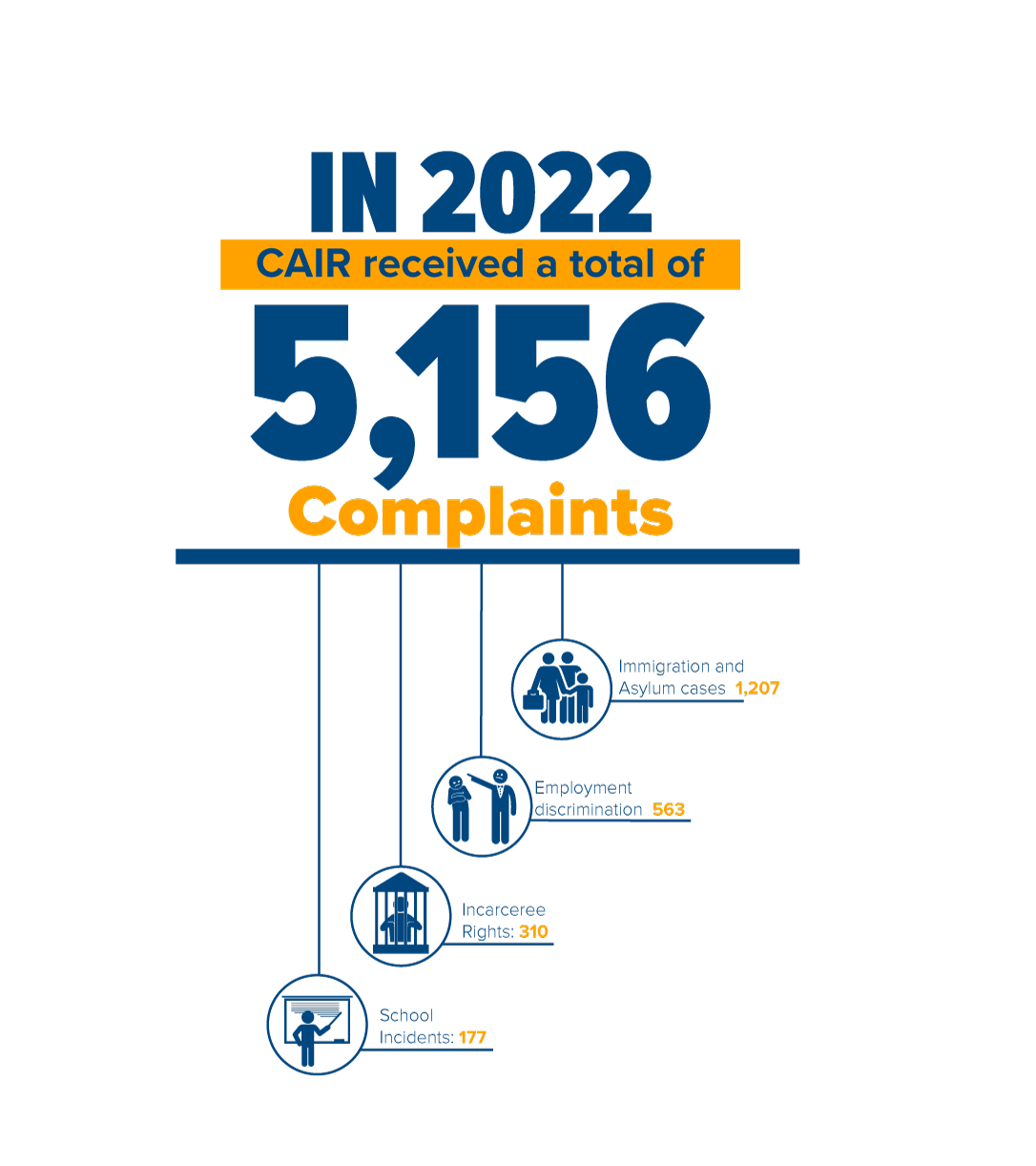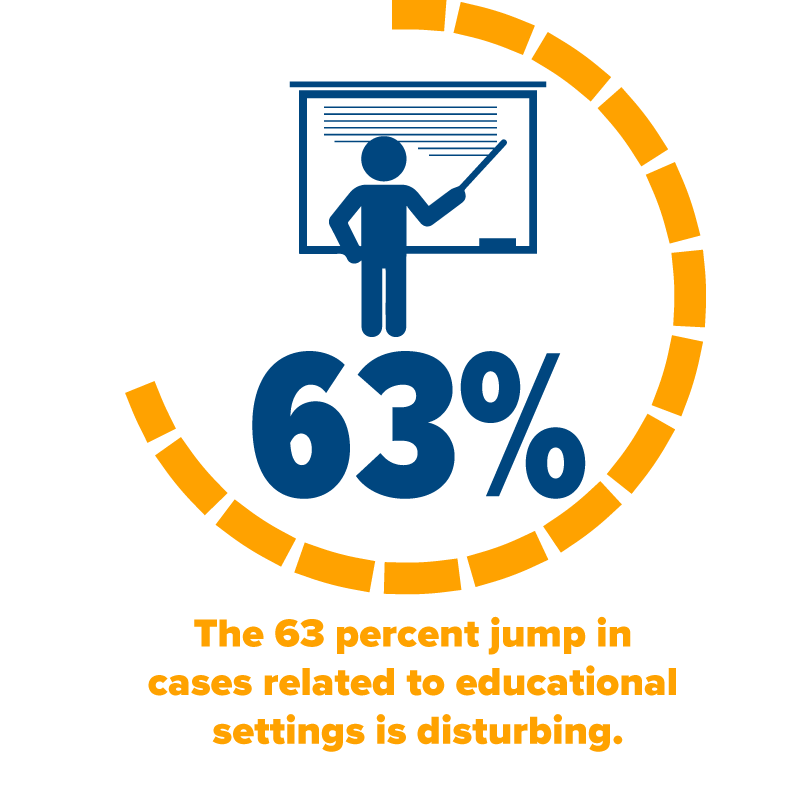Executive Summary

In 2022, CAIR received a total of 5,156 complaints nationwide. This is a 23 percent decrease in total complaints since the 6,720 complaints CAIR received in 2021. Domestic politics have been less volatile over the last couple of years. Less volatility may have contributed to a reduction in the number of complaints. We note that complaints about law enforcement and government overreach dropped by 38 percent. At the same time, complaints about school incidents increased by 63 percent.
Until January 6, 2021, white supremacists and antigovernment groups enjoyed political cover. Since then, federal assets appear to have shifted to these threats instead of anti-Muslim fishing expeditions. Drops in complaints about law enforcement and government overreach could reflect this change.
Regardless of the total number of complaints, the human experience of being subjected to hate remains chilling. The case studies section of this report provides examples of the effects of Islamophobia on the lived experiences of American Muslims and efforts to secure justice for them.
The special sections present our legal work helping Muslim plaintiffs pursue religious discrimination claims following FBI surveillance and upholding free speech protections for supporters of the Boycott, Divestment and Sanctions (BDS) Movement. We examine how the government continues its gymnastics to avoid supporting its own watch listing designations. We report on developments in the Banking
While Muslim phenomenon and a challenge to secret harvesting of the location data of Muslims from apps. We describe some of our work that ensured freedom of faith for Muslim inmates. We outline key revelations surrounding an anti-Muslim hate group paying for spies in U.S. Muslim institutions. Finally, we detail how Ohio and Maryland enshrined Muslim women’s sports inclusion into law.

One year of declining cases is not a problem solved; it’s a glimmer of hope. Securing future declines has never been more urgent. Expanded protections for all those confronted by bigotry requires that we now double down our efforts to advocate, legislate, and litigate to secure progress against prejudice. With this in mind we offer recommendations. We believe that the U.S. government should tie police funding to submission of hate crimes data. We assert that banks should end the wrongful targeting of American Muslim, Arab, and Persian families. We think that states should take action to enshrine religious sports attire inclusion in law. We also continue to urge the Department of Justice to investigate an anti-Muslim hate group that paid informants to spy on U.S Muslim institutions.
The election of 189 elected officials who identify as Muslim across 30 states to public office during the 2022 midterm is a welcome sign of American Muslims’ expanding ability to guarantee equal social opportunities and equal protection under the law, both for themselves and others. In Ohio and Maryland, youth athletes decided to speak up after school officials denied them the opportunity to participate in sports. In both states, there are now laws protecting future athletes.
At the same time, 2022 offered plentiful evidence that even without high-profile politicians vilifying Muslims for personal political gain, the characteristic of being Muslim continues to function as a prejudice magnet.



